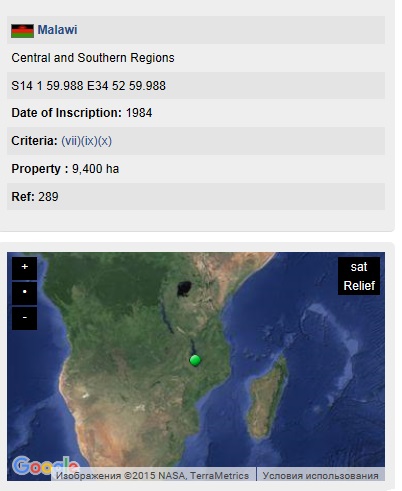November 10, 2015
The problems associated with drilling oil on Lake Malawi have resurfaced with the new claims challenging Malawi that they need to revoke the licenses they gave to Surestream for them to explore the possibility of drilling oil on the lake. A report that Malawi24 has seen warns Malawi that it stands in violation of the international law in its awarding of licensee for the mining of oil in Lake Malawi. The report published on Further Africa quotes an environmental activist Godfrey Mfiti who dares the Malawi government to immediately revoke the licenses.
“Malawi is a signatory to International Convention that do not allow it to drill oil in the lake,” said Mfiti to the publication. Malawi24 understands that the Malawi government is a signatory to the 1972 World Heritage Convention which was ratified in 1994. The convention urges signatories not to exploit world heritage sites of which Lake Malawi is one of them. It is further understood that once a place becomes a World Heritage Site, its ownership ceases to be of the member country in which the site is in. it becomes of the whole world. It is with this understanding that the Malawi government has been challenged that it does not own the lake. Malawi24 further understands that SADC member countries agreed that there shall be no exploration of minerals in shared waters. Lake Malawi is shared between Malawi, Tanzania and Mozambique.
 Parliament as well passed the Parks and Wildlife Act in 1993 which makes it illegal to mine in protected areas of which Lake Malawi is one. The Malawi government issued oil gas concessions to Surestream from United Kingdom and RAKGAS from Arab Emirates in order for them to explore oil and gas on the waters of Lake Malawi.
Parliament as well passed the Parks and Wildlife Act in 1993 which makes it illegal to mine in protected areas of which Lake Malawi is one. The Malawi government issued oil gas concessions to Surestream from United Kingdom and RAKGAS from Arab Emirates in order for them to explore oil and gas on the waters of Lake Malawi.
Additional information:
Lake Malawi National Park are located at the southern end of the great expanse of Lake Malawi, the property is of global importance for biodiversity conservation due particularly to its fish diversity. Lying within the Western Rift Valley, Lake Malawi is one of the deepest lakes in the world. The property is an area of exceptional natural beauty with the rugged landscapes around it contrasting with the remarkably clear waters of the lake. The property is home to many hundreds of cichlid fish, nearly all of which are endemic to Lake Malawi, and are known locally as "mbuna". The mbuna fishes display a significant example of biological evolution. Due to the isolation of Lake Malawi from other water bodies, its fish have developed impressive adaptive radiation and speciation, and are an outstanding example of the ecological processes.
Criterion (vii): The property is an area of exceptional natural beauty with its islands and clear waters set against the background of the Great African Rift Valley escarpment. Habitat types vary from rocky shorelines to sandy beaches and from wooded hillsides to swamps and lagoons. Granitic hills rise steeply from lakeshore and there are a number of sandy bays.
Criterion (ix): The property is an outstanding example of biological evolution. Adaptive radiation and speciation are particularly noteworthy in the small brightly coloured rocky-shore tilapiine cichlids (rockfish), known locally as mbuna. All but five of over 350 species of mbuna are endemic to Lake Malawi and represented in the park. Lake Malawi's cichlids are considered of equal value to science as the finches of the Galapagos Islands remarked on by Charles Darwin or the honeycreepers of Hawaii.
Criterion (x): Lake Malawi is globally important for biodiversity conservation due to its outstanding diversity of its fresh water fishes. The property is considered to be a separate bio-geographical province with estimates of up to c.1000 species of fish half occurring within the property: estimated as the largest number of fish species of any lake in the world. Endemism is very high: of particular significance are the cichlid fish, of which all but 5 of over 350 species are endemic. The lake contains 30% of all known cichlids species in the world. The property is also rich in other fauna including mammals, birds and reptiles.
Lake Malawi National Park is protected under national legislation and the resources of the park are managed and controlled by the Department of National Parks and Wildlife.
http://furtherafrica.com/2015/11/09/malawi-told-to-revoke-licenses-over-lake-malawi-oil-exploration/